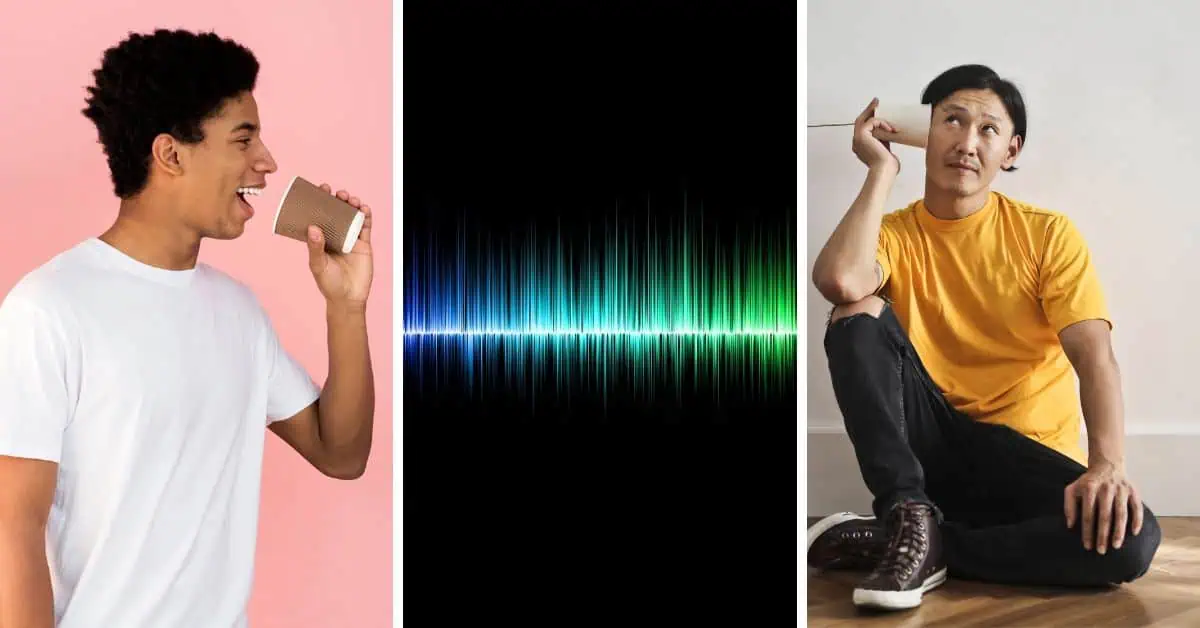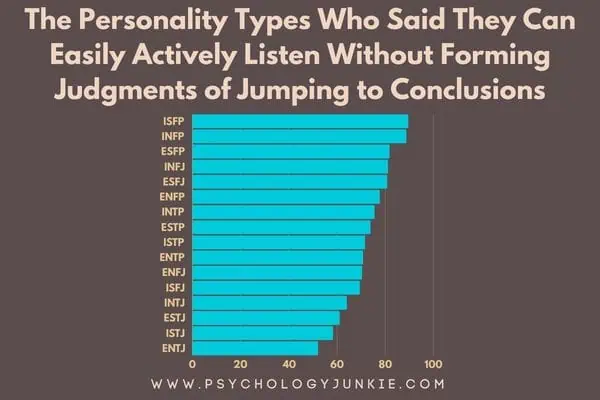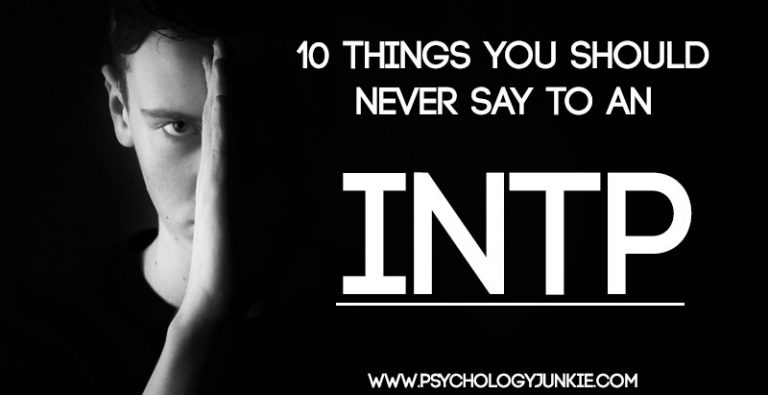Which Personality Types Are the Best (and Worst) Listeners?
Have you ever been involved in a conversation where you realized halfway through that you weren’t really listening? Maybe you were too busy formulating your response, considering your to-do list, or—if you’re anything like me—considering the brevity of life and wondering whether what you’re spending your time on something that actually matters in the grand scheme of things. (Thanks for that, brain.)
Active listening is a skill we all think we’re pretty good at, but are we really? I recently conducted a survey of over 80,000 individuals trying to get a clearer understanding of how the personality types process their own emotions and deal with others’ feelings as well. 6,385 people have responded so far (and you can share your voice here if you’re interested). In the survey I asked, “Do you find it easy to actively listen without jumping to conclusions or judgments?”

The results? Interesting to say the least. I think most people think they’re good listeners, so it’s important to remember this is all self-professed. Some people might think they’re really good listeners, but their friends and family might tell a different story. But based on the results we can see some clear patterns between type and listening. Let’s dive into the results and see what we can discover!
Not sure what your personality type is? Take our new personality questionnaire here. Or you can take the official MBTI® here.
Table of contents
- Which Personality Types Are the Best (and Worst) Listeners?
- ISFP: 89.58% Answered ‘Yes’ or ‘Often’
- INFP: 88.78% Answered ‘Yes’ or ‘Often’
- ESFP: 81.82% Answered ‘Yes’ or ‘Often’
- INFJ: 81.20% Answered ‘Yes’ or ‘Often’
- ESFJ: 80.84% Answered ‘Yes’ or ‘Often’
- ENFP: 77.78% Answered ‘Yes’ or ‘Often’
- INTP: 75.61% Answered ‘Yes’ or ‘Often’
- ESTP: 73.91% Answered ‘Yes’ or ‘Often’
- ISTP: 71.70% Answered ‘Yes’ or ‘Often’
- ENTP: 70.84% Answered ‘Yes’ or ‘Often’
- ENFJ: 70.37% Answered ‘Yes’ or ‘Often’
- ISFJ: 69.49% Answered ‘Yes’ or ‘Often’
- INTJ: 64.10% Answered ‘Yes’ or ‘Often’
- ESTJ: 61.11% Answered ‘Yes’ or ‘Often’
- ISTJ: 58.34% Answered ‘Yes’ or ‘Often’
- ENTJ: 52.17% Answered ‘Yes’ or ‘Often’
- What Do You Think?
Which Personality Types Are the Best (and Worst) Listeners?

ISFP: 89.58% Answered ‘Yes’ or ‘Often’
And now to the champs of listening! The ISFP—sometimes called “The Adventurer,” but honestly, that makes them sound like Indiana Jones when they’re more like the emotional anchor of your friend group. ISFPs lead with Introverted Feeling (Fi) and back it up with Extraverted Sensing (Se). This combination means they’re deeply attuned to their own values and emotions while also being incredibly present in the moment.
Why are they so good at listening? Fi gives them an ability to mirror your emotions—to put themselves in your shoes and imagine how it would feel if they were you. They also genuinely care about how you feel, even if you’re crying over a fictional character that died three seasons ago. Meanwhile, Se keeps them grounded and engaged, so they’re not zoning out halfway through your story about the weird thing your coworker said during the Zoom meeting.
Here’s what one ISFP respondent said:
“I don’t know, I just like to let people talk it out. Half the time, I don’t even need to say anything—sometimes they solve their own problems while I’m sitting there nodding.”
Another chimed in:
“I’ve been told I have a very ‘therapist-y vibe,’ which is funny because I mostly just repeat back what they said. Like, ‘That must have been really hard.’”
Find out more about ISFPs: 10 Things ISFPs Need in a Relationship
INFP: 88.78% Answered ‘Yes’ or ‘Often’
INFPs are the soulful idealists of the Myers-Briggs® world—full of ideas, imagination, and rich inner emotions. Their top functions, Introverted Feeling (Fi) and Extraverted Intuition (Ne), make them compassionate listeners with a knack for seeing multiple perspectives.
Why are INFPs so good at listening? Fi means they’re emotionally in tune and focused on understanding your unique experience. They don’t just hear you—they try to put themselves in your shoes. Ne, on the other hand, lets them imagine all the possibilities of what you’re saying, which makes them genuinely curious. When you say something that seems odd or even controversial, they’re curious. Rather than forming judgments, they want to understand your perspective and find new ways of understanding you.
Here’s what an INFP respondent said:
“Listening is my superpower. I don’t know how to explain it, but I always want to make people feel safe to say whatever they’re thinking and I think just being there is more powerful than words.”
I’ve seen this firsthand in coaching. INFPs have a way of making people feel like their feelings are valid—even if it’s something as niche as being upset that their favorite brand of cereal changed the box design.
Discover more about INFPs: 21 Hobbies That INFPs Love
ESFP: 81.82% Answered ‘Yes’ or ‘Often’
If ISFPs are the quiet listeners, ESFPs are the ones cheering you on from the sidelines. Known as “The Champion,” they lead with Extraverted Sensing (Se) and support it with Introverted Feeling (Fi). This means they’re fun, present, and emotionally in tune—a rare trifecta.
Why are they great listeners? Se makes them hyper-focused on what’s happening right now, so they’re not checking their phone while you talk or rehashing a bad experience from their past. Fi keeps them emotionally invested—they want to connect with you on a real, human level. No phoniness involved; just be real with them.
Here’s an ESFP respondent’s take:
“I love listening to people’s stories! Especially the juicy ones. Like, tell me all about your breakup—I’m here for the drama and the healing.”
Another said:
“I’m not just gonna sit there quietly and nod; I’ll hype you up! If you’re venting about something, I’ll feel it with you and be angry with you.”
In my experience, ESFPs are the type who’ll interrupt you mid-rant to say, “Wait, wait, what did they say exactly?” because they’re hanging on every word. Their energy is contagious, which makes them great listeners and instant morale boosters.
INFJ: 81.20% Answered ‘Yes’ or ‘Often’
INFJs are often described as “The Mystics” of the personality type world, but honestly, they’re more like your emotionally intuitive life coach—minus the hefty price tag. Leading with Introverted Intuition (Ni) and supported by Extraverted Feeling (Fe), they excel at understanding where you’re coming from and where you’re going (even if you don’t).
Why are INFJs great listeners? Ni helps them see the big picture of what you’re saying—they’re connecting dots and reading between the lines. It also gives them a unique ability to perspective-shift and be curious about what it feels like to be you.
Antonia Dodge from Personality Hacker put it well,
“They seem to just “get” what’s going on for others, and they’re very often right. Even if the INFJ has never experienced those circumstances themselves, somehow they’ll ‘just know’ how a person is feeling and be able to show great empathy and understanding.” – Antonia Dodge
Meanwhile, Fe makes INFJs super attuned to your emotions. They’re not just listening to your words; they’re picking up on your tone, body language, and probably even your aura (kidding…mostly).
An INFJ respondent shared:
“When people talk to me, it’s like I can sense what they’re really trying to say, even if they don’t have the words for it. I don’t know if that’s deep or creepy, but it works.”
Another said:
“Sometimes I finish people’s sentences for them—not to be rude, but because I already know where they’re going. It freaks some people out, but others are like, ‘Wait, how did you know?’”
I’ve had INFJ clients tell me they feel like they carry everyone else’s emotional weight because people naturally open up to them. INFJs make you feel seen, which is why people tend to flock to them for advice, reassurance, or just a good cry.
Find out more about INFJs: The INFJ’s Cognitive Functions
ESFJ: 80.84% Answered ‘Yes’ or ‘Often’
The ESFJ, often referred to as “The Defender” is like your emotional safety net. You’ve had a rough day? They’re already halfway to your house with snacks and a listening ear. ESFJs lead with Extraverted Feeling (Fe) and are backed by Introverted Sensing (Si), making them emotionally supportive and great at recalling the little details that matter.
Why are they so good at listening? Fe makes them masters of emotional connection—they’re not just listening, they’re feeling alongside you. Si, on the other hand, lets them remember every tiny thing you’ve ever told them along with your specific likes and dislikes.
Here’s what one ESFJ respondent said:
“I hate seeing people struggle alone. If you need to vent, I’m your person. I’m probably gonna overthink how to help you afterward, though, so fair warning.”
From my own experience with ESFJs, they’re the ones who’ll text you three days later to check in because they genuinely care. You could be ranting about something trivial, and they’ll still treat it like it’s the plot of a Netflix drama.
ENFP: 77.78% Answered ‘Yes’ or ‘Often’
And now we’re onto the ENFPs—“The Visionaries” of the Myers-Briggs world and quite possibly the most inspiring people you’ll ever meet. ENFPs lead with Extraverted Intuition (Ne) and follow it up with Introverted Feeling (Fi). This makes them curious, empathetic, and wildly imaginative listeners.
Why are they great at listening? Ne makes them see endless possibilities in your story—they’re already imagining the movie version of your breakup saga. When you say something off-kilter or odd, they’ll be curious rather than judgmental or dismissive. They approach life with a sense of wonder, and that wonder can extend to what you’re going through. Fi, meanwhile, makes them real and authentic, which is why they create an environment that feels safe to open up in – even about the embarrassing or awkward stuff.
Here’s one ENFP respondent’s take:
“Okay, so sometimes I get distracted because my brain is like, ‘What if THIS happens next?’ But I genuinely care and want to make them feel safe in expressing whatever they want to say, no matter how ‘weird.'”
Discover more about ENFPs: How to Communicate Effectively with an ENFP
INTP: 75.61% Answered ‘Yes’ or ‘Often’
INTPs, a.k.a. “The Thinkers,” are the quiet intellectuals of the personality type world. They lead with Introverted Thinking (Ti) and support it with Extraverted Intuition (Ne). This combo makes them analytical, curious, and -unfortunately for some – highly attuned to logical fallacies.
Ti makes INTPs want to understand the logic of what you’re saying. They’re not just nodding politely; they’re dissecting your argument like a detective unraveling a case. They can easily spot logical inconsistencies, loopholes, and any red herring/straw man/ad hominem you might be using to defend your position. The analytical intensity that INTPs bring to a conversation can be enlightening for some and off-putting to others. If you want to be reinforced in your existing opinions they’re probably not the go-to person. But if you want to be challenged and intellectually enlightened, then call them up!
Here’s what one INTP respondent said:
“Honestly, I don’t even need to talk during a conversation. I’ll just sit there like, ‘Huh, interesting,’ and everyone thinks I’m wise. Joke’s on them—I’m probably overthinking the syntax of their last sentence.”
INTPs I’ve coached often feel like they’re expected to “validate” things when they’d rather just listen, analyze, and offer clarity. One told me, “I’m not going to jump in with a bunch of solutions. I know that’s not what people want. But I hate to let people labor under messy logic without saying something. It feels dishonest.”
Find out more about INTPs: The INTP Ti-Si Loop
ESTP: 73.91% Answered ‘Yes’ or ‘Often’
The ESTP—bold, energetic, and occasionally reckless—might not be the first type you think of when it comes to active listening, but don’t underestimate them. Leading with Extraverted Sensing (Se) and backed by Introverted Thinking (Ti), ESTPs are sharp, present, and quick to pick up on details most people miss.
Why are they (sometimes) good listeners? Se keeps them laser-focused on the here and now, so they’re not drifting off while you talk. That said, it also gives them a hunger for action. So if you’ve got something to say, try opening up a conversation while playing a game, taking a walk, or going on a drive.
Ti, meanwhile, makes ESTPs analyze what you’re saying, though they might interrupt with questions if they feel like what you’re saying doesn’t make sense. And don’t expect them to stay closed-mouth if what your saying is full of holes; they’ll remind you of what’s logical, sometimes with a well-timed (or infuriating) joke.
An ESTP respondent shared:
“I’m a good listener if we’re doing something. But if you expect me to just sit in a chair and listen to small talk for an hour, I will check out or get up and leave. I have to be in motion to do my best conversing.”
In my practice, ESTPs are the ones who’ll call you out mid-rant: “Wait, wait, that doesn’t make sense—start over.” It might seem blunt, but they’re just genuinely invested in getting the story straight. They might not be the “let me hold space for you” type, but if you need someone to keep up with your high-energy vent session, they’re your go-to.
ISTP: 71.70% Answered ‘Yes’ or ‘Often’
ISTPs—known as “The Vigilantes”—are the MacGyvers of the personality world. They lead with Introverted Thinking (Ti) and back it up with Extraverted Sensing (Se), which makes them sharp problem-solvers and highly observant. While they might not be known for their listening skills, they’re better at it than you might expect—if the topic catches their interest.
Ti makes ISTPs want to understand things on a deep, logical level. They’re the type to sit quietly, connecting dots in their head, and then suddenly drop a question that makes you rethink everything you just said. Se keeps them focused on the present and interested in facts and experiences. If what you’re saying has a relevant application in the moment, chances are, they’ll pay attention.
However, Dr. Dario Nardi, a neuroscience expert and former UCLA professor, states “Of all the types, Ti types (ISTPs and INTPs) show the least interest in listening. They show low to no activity in regions T3 and T4, which are typically active for other people. Male Ti types in particular are likely to listen for only a second or two when someone starts speaking; then, activity in T3 and T4 vanishes as their attention moves elsewhere unless they force themselves to focus on listening. When they stop listening, they can’t report back accurately what was said.” – Dr. Dario Nardi, Neuroscience of Personality
T3 and T4 are short for the temporal regions that sit by and behind the ears. These regions take an analytical approach to spoken language, helping to focus on specific words, correct grammar, proper word usage, and effective diction. They also focus on tone of voice and other affective qualities of speech.
So it’s kind of a mixed bag of results for ISTPs. I’ve known quite a few who were excellent listeners, but that’s largely been when the conversation topic was relevant to them. Small talk or lengthy, abstract conversations (or emotional venting) can make them check out because they see no real practical application.
One ISTP respondent put it this way:
“I’m not here to coddle your feelings, but if you’ve got a problem, I’ll listen, figure out what’s wrong, and help you fix it.”
ENTP: 70.84% Answered ‘Yes’ or ‘Often’
ENTPs—”The Trailblazers”—are the lively, idea-generating chaos agents of the MBTI® world. They lead with Extraverted Intuition (Ne) and follow it up with Introverted Thinking (Ti), which makes them curious, quick-witted, and perpetually three steps ahead in any conversation. But listening? That’s…complicated.
Why are they decent listeners? Ne makes them curious about what you’re saying—they love diving into new ideas, even if they sometimes derail the conversation with tangents like, “Oh! That reminds me of this thing I read about octopus intelligence!” Ti helps them analyze and connect your thoughts, but let’s be real: ENTPs are sometimes brainstorming a counterpoint before you’ve even finished your sentence. And if you are using faulty logic in your reasoning? Don’t expect an ENTP to stand by and say nothing. If they respect you and genuinely care for you they will speak up and try to clarify with logic. It may not FEEL loving, but it often is.
An ENTP respondent summed it up perfectly:
“Okay, so sometimes I interrupt, but it’s not because I don’t care—it’s because I’m excited! If I don’t say it right away, I’ll forget, and then no one wins.”
ENFJ: 70.37% Answered ‘Yes’ or ‘Often’
ENFJs—”The Mentors”—are the charismatic, people-focused leaders of the personality type world. They lead with Extraverted Feeling (Fe) and are supported by Introverted Intuition (Ni), which makes them natural connectors with an uncanny ability to read people.
Why are they good listeners? Fe makes them hyper-attuned to emotions—they don’t just listen, they get emotionally synched up with you. Ni gives them an insight into the deeper meaning of things, so they’re not just hearing your words; they’re piecing together what you really mean. The catch? They might jump into “helper mode” a little too quickly, forming conclusions, judgments, or predictions rapidly. After all, they are Judgers, and Judgers like to come to conclusions. And as Introverted Intuitives (NJs) they naturally form predictions, conclusions, and sense how things will unfold, often before you’re done with your sentence.
Here’s what an ENFJ respondent said:
“I’ll admit it: I sometimes over-listen. Like, I’ll notice someone’s tone shift slightly, and suddenly I’m analyzing their entire emotional state. It’s exhausting, but that’s just life with Fe as the driver.”
I personally have experienced ENFJs as good listeners, but if you want someone to just quietly listen and give you space to express without any advice, insight, or analysis, they can struggle with that. They often gain insights into how things will unfold and feel compelled to share them. And if you’re sad or upset, chances are, they’ll want to lift your mood and encourage you. They may try to offer a ‘bright side’ to the situation when you simply want someone to commiserate with. But if you want encouragement, empathy, and mentorship, this is the type you should call!
Find out more about ENFJs: Inspiring Morning Routines for ENFJs, ENFPs, INFJs, and INFPs
ISFJ: 69.49% Answered ‘Yes’ or ‘Often’
ISFJs—”The Protectors”—are the quiet guardians of the personality world. They lead with Introverted Sensing (Si) and back it up with Extraverted Feeling (Fe), making them detail-oriented, empathetic, and wonderfully attentive to the people they care about. While they didn’t rank as high as some other types, they bring their own unique strengths to the listening table.
Si makes ISFJs detail-oriented—they’ll remember the specific way you like your coffee or the fact that you cried during that one Disney movie. Fe makes them emotionally in tune, so they’re great at offering comfort and support. The only downside? They might get stuck on past experiences, connecting something you’re saying now with an experience they’ve had in the past. Or if the conversation gets too abstract and detached from the real world, they can find themselves struggling to stay tuned in.
Here’s what one ISFJ respondent said:
“If you need someone to listen and nod along, I’m your person. But I feel awkward giving a lot of advice or talking about topics that don’t have any real practical application. But I still try to listen the best I can.”
In my practice, ISFJs are the ones who’ll say, “I don’t know if this is helpful, but here’s what worked for me.” They’re not flashy or dramatic, but their quiet, consistent support can feel like a warm blanket on a cold day. One ISFJ client told me, “I just want people to know I’m there for them.”
Discover more about ISFJs: 10 Things You Crave Every Day as an ISFJ Personality Type
INTJ: 64.10% Answered ‘Yes’ or ‘Often’
And now the INTJs, “The Strategists” of the personality world. They lead with Introverted Intuition (Ni) and back it up with Extraverted Thinking (Te), which makes them strategic, insightful, and visionary. Listening, though? Some of them struggle—but when they care about the topic or person, they can surprise you.
Ni gives INTJs the ability to see patterns and underlying meanings in what you’re saying. They’re not just hearing your words; they’re analyzing where you’re coming from and what you might not be saying. On top of that, they’re probably analyzing the ripple-effects of whatever you’re going through or gauging your underlying intentions. Te means they’re solution-oriented, but that’s where they can get into trouble—they might jump straight to “Here’s what you should do” when you just wanted a sympathetic ear.
Here’s what an INTJ respondent said:
“Look, I’ll listen, but only if what you’re saying has some kind of point. If you’re just rambling about details that have no relevance to anyone, I’ll check out.”
Another wrote:
“I’ve been accused of not listening, but I am—I’m just three steps ahead in my brain, trying to figure out the best way to solve the problem. If that’s wrong, I don’t want to be right.”
One INTJ client told me, “I want to help people, but I get frustrated when they don’t act on my advice.” INTJs aren’t the type to coddle your emotions, but if they’re listening, it’s because they genuinely care about getting you to a better place. And it’s important not to take their advice as being “bossy” or “insensitive.” For INTJs, offering solutions is how they show they care. If they didn’t care, they wouldn’t try to help.
Find out more about INTJs: The Dark Side of the INTJ Personality Type
ESTJ: 61.11% Answered ‘Yes’ or ‘Often’
ESTJs—“The Captains” of the personality type world—are efficient, goal-oriented, and pragmatic. They lead with Extraverted Thinking (Te) and support it with Introverted Sensing (Si), which makes them fantastic at organizing, planning, and getting things done. Listening, though? It’s…well, situational.
Te makes ESTJs logical and task-focused, so if your problem is concrete and actionable, they’re all ears. Si gives them a strong memory for details, which helps them recall what you’ve said—especially if it’s relevant to their agenda. But if your story meanders or lacks a clear purpose, an ESTJ might check out fast.
Here’s what an ESTJ respondent shared:
“I listen to understand the issue, not to ‘feel your feelings.’ Like, tell me the problem, and I’ll fix it.”
Another admitted:
“I’m not great at just sitting there. If you’re venting, I’ll probably interrupt with, ‘Okay, so what are we going to do about it?’”
I’ve worked with ESTJs who struggle with emotional conversations. One told me, “I don’t want to come off as insensitive, but I’ve had my advice thrown in my face so many times by people that just wanted a bunch of sympathy and no solutions. How can I do that? If there’s a fix to your problem, I’m going to offer it because I really DO care.” That’s the thing with ESTJs—they’re not unkind; they’re just wired to act, not dwell. If you need a problem solved, though? Call them. Immediately.
ISTJ: 58.34% Answered ‘Yes’ or ‘Often’
ISTJs—“The Detectives”—are the steady, reliable planners of the personality world. Leading with Introverted Sensing (Si) and supported by Extraverted Thinking (Te), they excel at consistency and structure. But listening? Some excel while others struggle.
Si makes ISTJs detail-oriented and practical; they’ll remember the facts and assess whether what you’re saying has any real relevance. They’ll compare and contrast your perspective with what they’ve learned from their own experiences, offering advice or wisdom they’ve gleaned through life. Te makes them pragmatic and focused on solutions, so if you’re asking for advice, they’ll give you a well-thought-out plan. But here’s the catch: ISTJs don’t always pick up on emotional nuances, so if you’re venting without asking for help, they might not know what to do.
One ISTJ respondent said:
“I listen to understand, not to ‘validate’ or whatever. If you want someone to say, ‘Wow, that sucks,’ call an INFP. If you want solutions, call me.”
ISTJs are Judgers; they want to have a plan and closure. So keep that in mind if you’re reaching out to them for emotional support. They won’t feel like they’re helping by just sitting there and nodding along. Instead, they’ll try to offer solutions, advice from their own lives, or some practical tips and how-to’s. And if you’re rambling a lot? They may check out. A lot of extended listening can wear them out if someone is rambling or overwhelming them with too much data.
ENTJ: 52.17% Answered ‘Yes’ or ‘Often’
ENTJs—“The Directors”—are bold, driven, and visionary. Leading with Extraverted Thinking (Te) and supported by Introverted Intuition (Ni), they’re all about strategy, efficiency, and getting results. Listening, though? Let’s just say it’s not their most celebrated strength. That said, 52.17% of them still said that it was easy for them to listen.
Te makes ENTJs laser-focused on goals, so they’re often more interested in doing than hearing. Ni gives them insight into the bigger picture, but it can also make them impatient with details or emotional detours. If your story doesn’t have a clear point, good luck keeping an ENTJ’s attention.
Here’s what one ENTJ respondent said:
“I don’t listen to listen—I listen to figure out what needs to happen next. If that’s wrong, I don’t care. It works.”
Another wrote:
“I’ll listen, but small talk will make it a real challenge for me. If you start rambling, I’m going to assume you just want to vent and not actually take part in a two-way conversation.”
In my experience, ENTJs shine when there’s a problem to solve or a goal to achieve. One ENTJ client once said, “If you’re venting, just tell me upfront so I don’t waste time offering solutions.” They’re not cold—they just see time as a resource, and they don’t want to waste yours or theirs. But if you need someone to strategize your way out of a sticky situation? ENTJs are your people.
What Do You Think?
How do you approach listening? And which personality types do you think excel the most? Let us and other readers know in the comments! Explore more about your personality type in our eBooks, Discovering You: Unlocking the Power of Personality Type, The INFJ – Understanding the Mystic, The INFP – Understanding the Dreamer, and The INTJ – Understanding the Strategist.









I listen without interrupting, but I make quick judgments in my head. If they talk too long, then I think about other things while pretending to keep listening. My ISTP daughter is horrible at listening. If I tell her to do two things, she will only remember one of them.
Some only listen a few words to formulate their way and thinks they are good listeners.